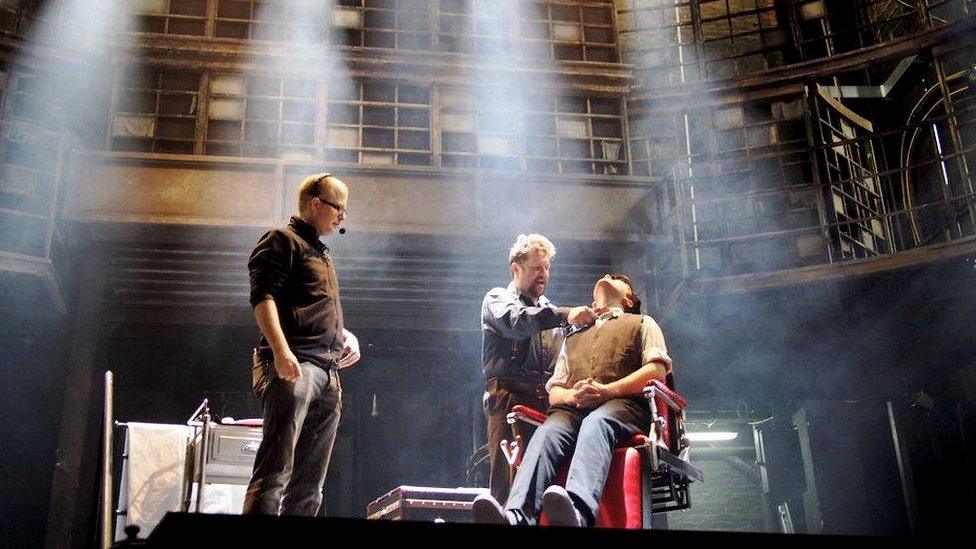Covid: The night London's theatres went dark
- Published
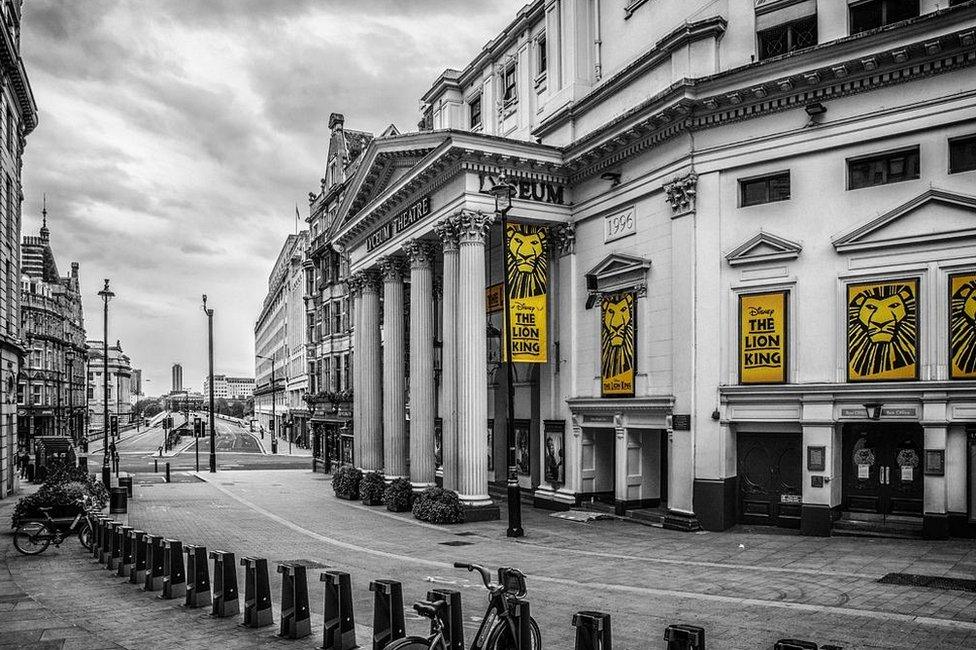
The Lyceum Theatre with Waterloo Bridge in the background
For those in the theatre industry, the festive period would usually be one of the busiest times of the year with extra shows and people packing out venues.
Yet London's move into tier four means that the stages of the West End will remain silent this Christmas - as many have been since one particular day back in March.
"In the industry the 16th [of March] is now commonly referred to as 'Dark Monday'. It was the night when all the theatres went dark," explains Troy David Johnston.
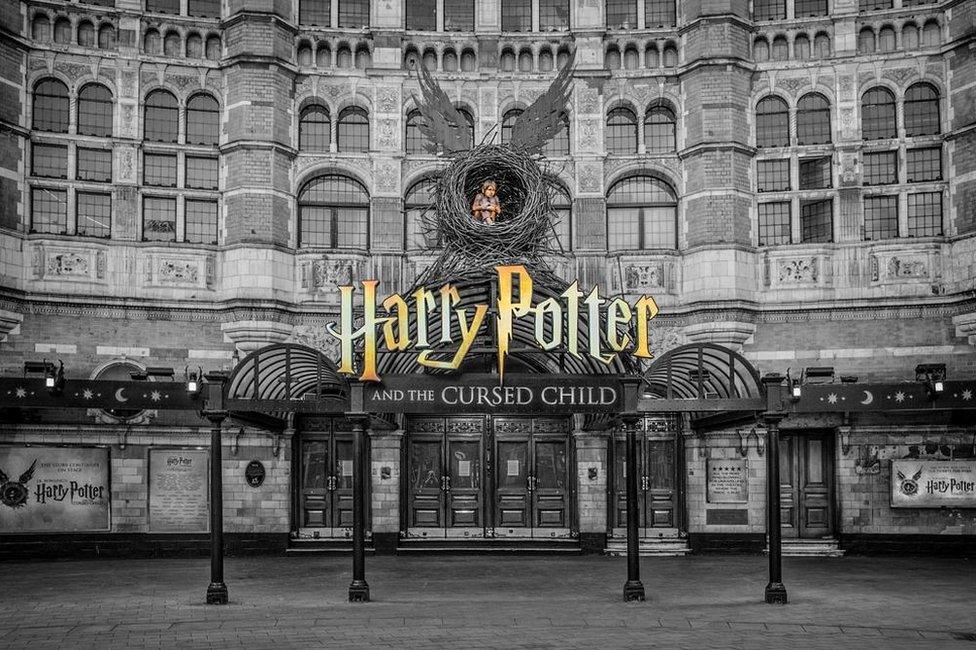
The Palace Theatre on Shaftesbury Avenue
Troy had spent that Monday in the Apollo Victoria where he worked as principal dresser on the musical Wicked. That afternoon, Prime Minister Boris Johnson announced that people should avoid going to theatres due to the threat of Covid-19.
"We knew it was coming, having seen what happened on Broadway the week before, but we just didn't know when.
"Then we were called to stage at around 6:30pm for a full company meeting. Laura Pick (who plays the green-skinned Elphaba) was one of the last to join us onstage, having already started the character make-up process.
"She pulled a silly face and everyone laughed. She'd now have to go and shower and wash all the green off without having done the show."
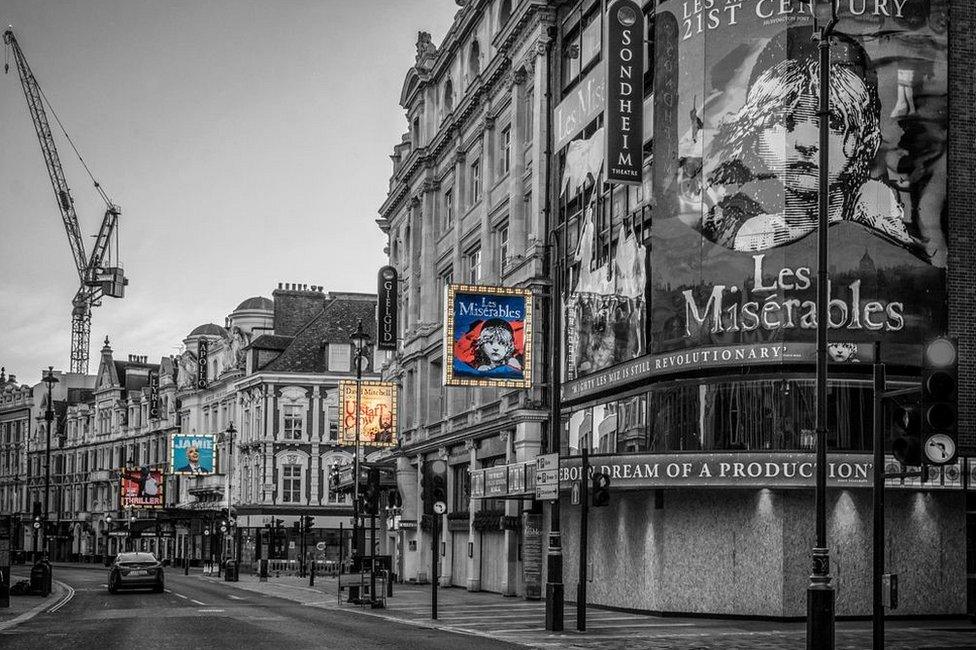
The Sondheim Theatre, the Gielgud Theatre, the Apollo Theatre and the Lyric Theatre on Shaftesbury Avenue
Without his day job, Troy began lockdown like many did - baking and taking his daily hour of exercise by riding his bike around the capital.
During his cycle rides, the Australian-born former actor (rather inevitably he has appeared in Neighbours) found himself drawn to the barricaded theatres of the city.
"Seeing London absolutely deserted for the first time was really weird. It was great not having all the traffic, but disturbing to see the city like that."
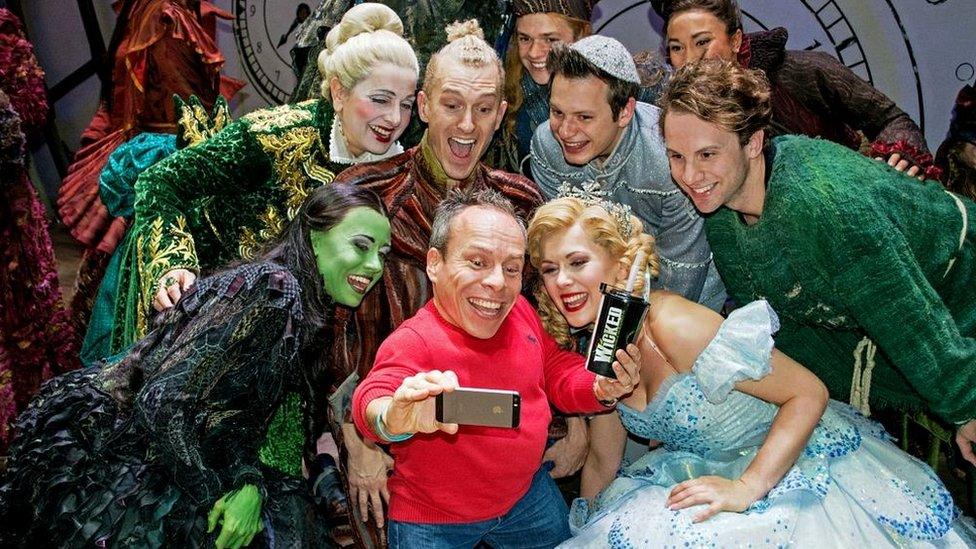
Troy takes pictures for the Wicked social media accounts, which often involves photographing famous faces like Warwick Davis when they visit the show
A keen photographer, who is behind the images posted on the Wicked UK social media accounts, Troy began to take his camera out to snap pictures of the venues at a time when the streets were silent.
Back at his south London home, he would edit the photos to make them black and white but with flashes of colour.
The eerie results show London's theatres on empty street corners, with weeds sprouting up in front of locked-up entrances and stage doors shut behind barricades.
"What started off as taking images of my favourite buildings suddenly became a collection of 84 theatres, from the Park Theatre in Finsbury Park to the New Wimbledon, and from the Theatre Royal Stratford East to the Lyric Hammersmith.
"And basically that was it - the Going Dark photo-book project was born."
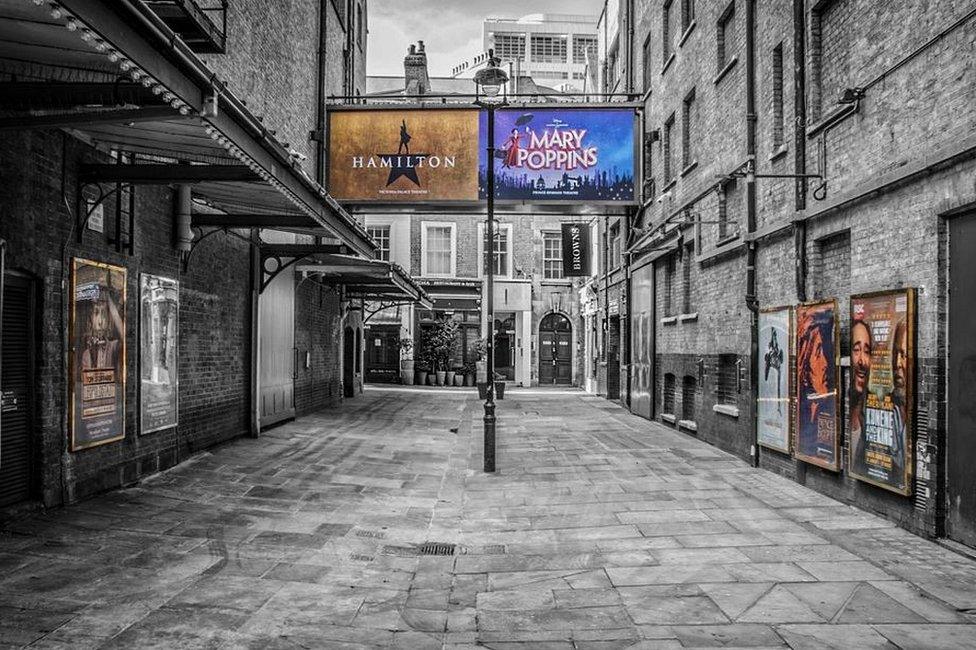
St Martin's Court in Covent Garden
To go alongside the images, Troy has enlisted members of the theatre industry to write about "Dark Monday".
People across the theatrical world have got involved, from dancers and musicians to carpenters and prop-makers.
Stage and screen legend Dame Judi Dench was among the contributors, providing the foreword in which she writes:
"We cannot do our job 'from home' and there is no indication of when life might return to normal. I cannot bear the thought that some of us will never work in a theatre again."

The locked stage doors of the Phoenix Theatre and the Palace Theatre
Such a wide range of contributors was included to make the book a "voice of the whole theatre community", Troy said.
"For many of our community, the theatre is like a second home. As we work outside standard business hours, these venues also become our primary social environments as well. We work and socialise together, we mix with other colleagues from other shows.
"We've all been cut off from these aspects of our lives."
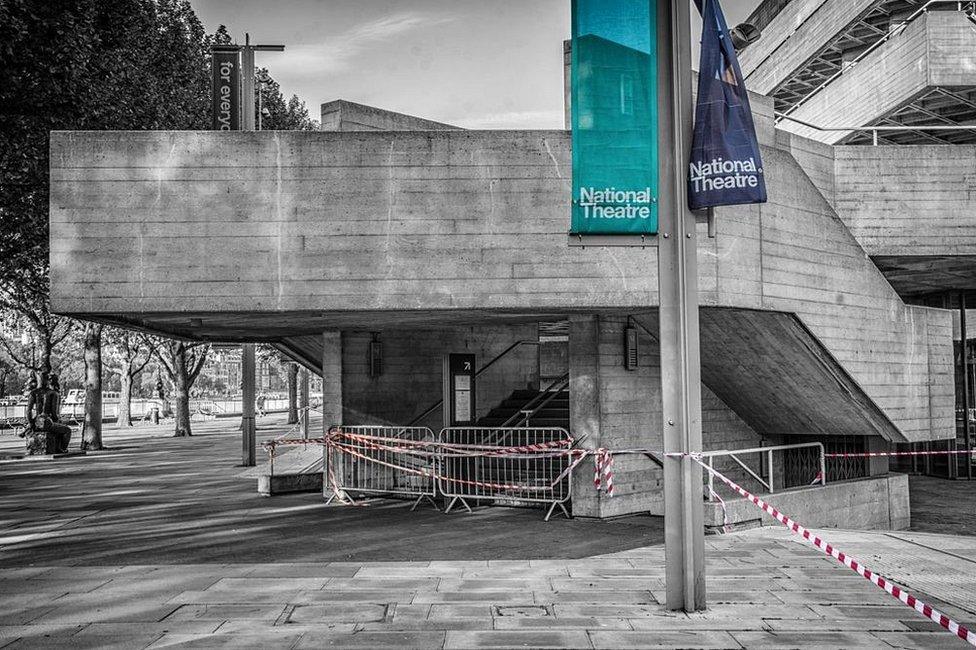
The National Theatre on the South Bank
Troy plans to give part of any profits from the book to the mental health charity Mind, and Acting For Others, which supports theatre workers.
"This lockdown has been an emotional thing. I've personally found it really difficult. Some days you're OK, others you're not."
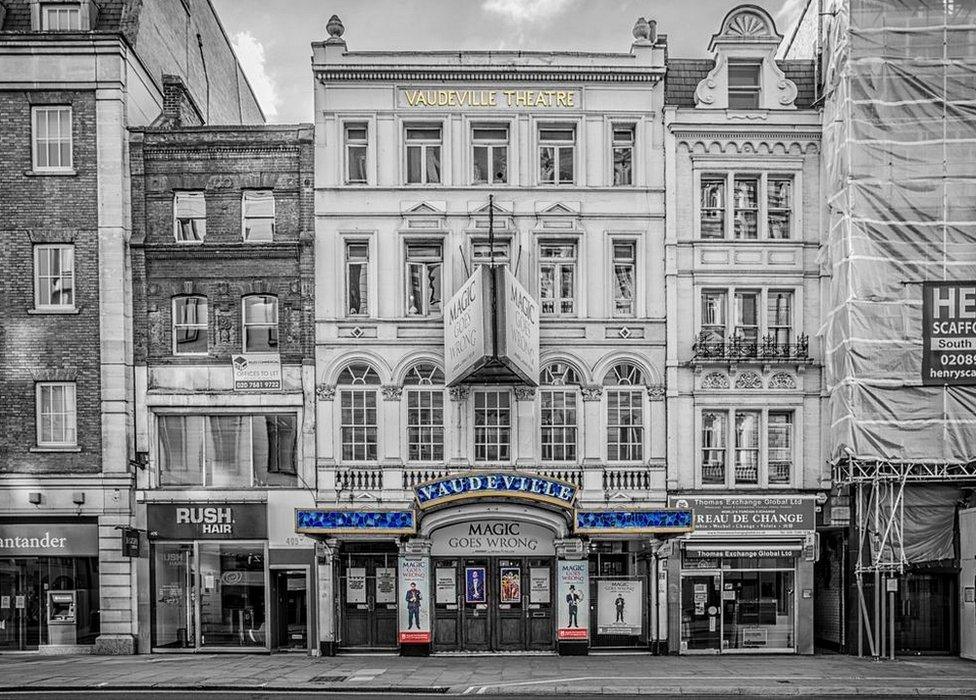
The Vaudeville Theatre in Covent Garden
While shows like Six and Everybody's Talking About Jamie were able to return for a couple of weeks before London entered tier three, other productions like Wicked and Phantom of the Opera did not come back.
"Social distancing is really hard backstage, we have to be close," Troy explains. "There is one change in the show which is 16 seconds long and involves the two actresses doing a full costume change. You have them, two dressers, a wig person and a stage manager all in a tiny space so you can't social distance.
"Audiences don't realise the number of people involved. They shouldn't realise. It should just happen in front of your eyes."
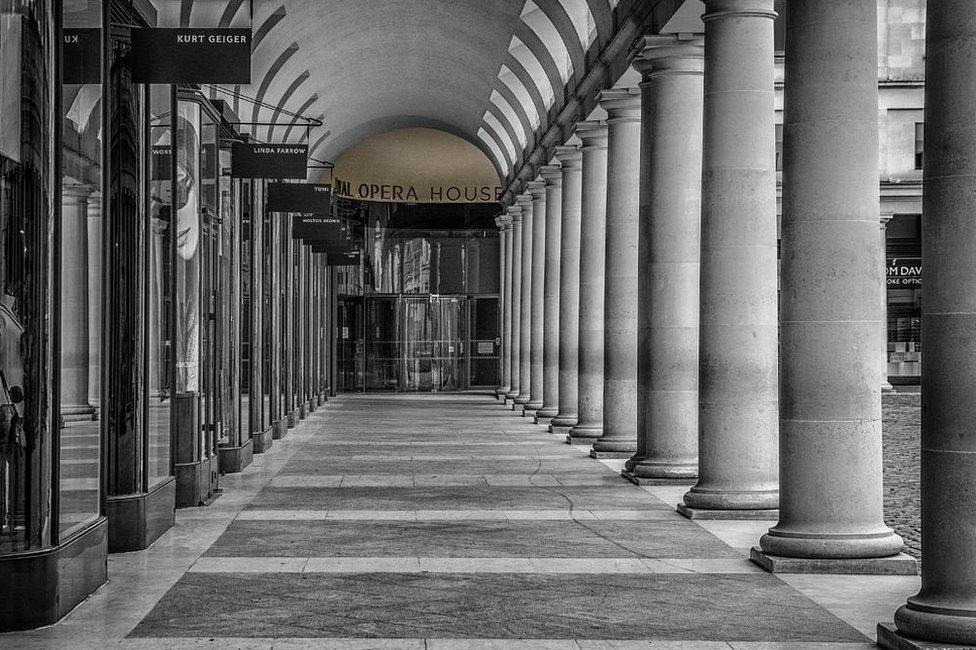
The Covent Garden entrance to the Royal Opera House
For Troy, this year's Christmas will be spent away from his beloved theatre. Instead he will be spending most of the time working on a book that he hopes will be published around the first anniversary of Dark Monday.
But he can't wait for when he can return to the wings of the Apollo to be among the community he adores.
"We just want to get back," he said.
"Everyone wants to get back."
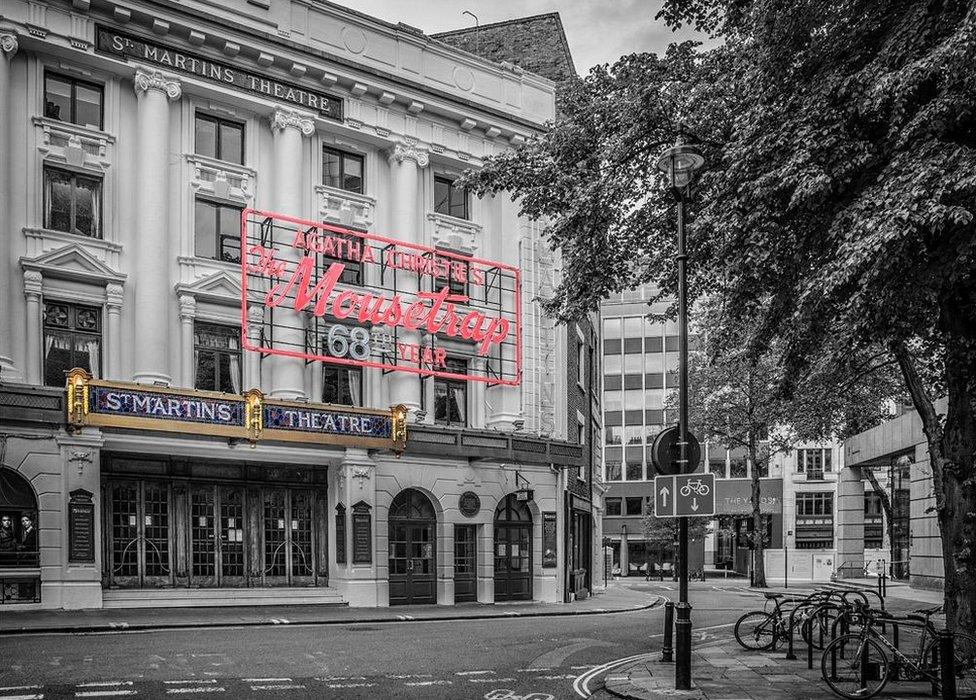
St Martin's Theatre in Covent Garden, home of the world's longest-running theatre show
All images subject to copyright
- Published21 December 2020
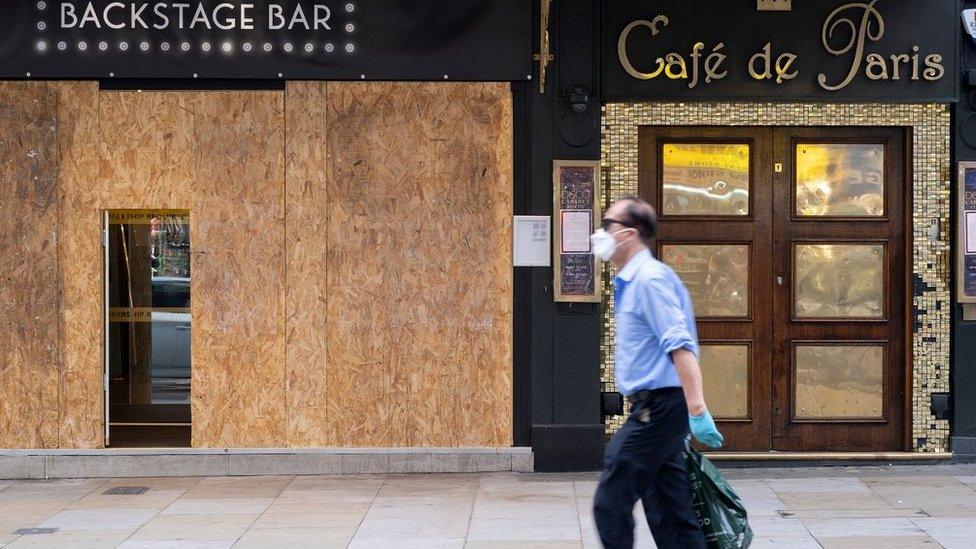
- Published3 December 2020
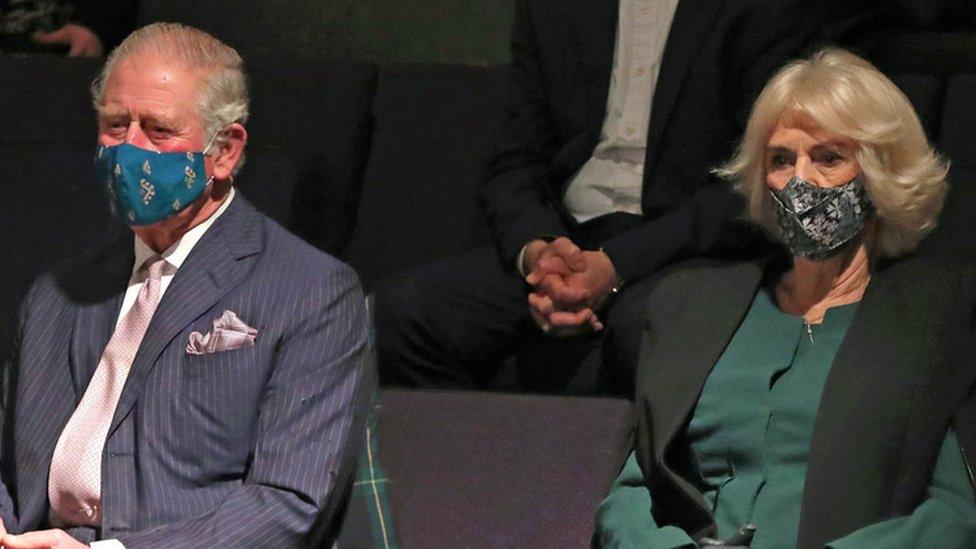
- Published29 September 2020
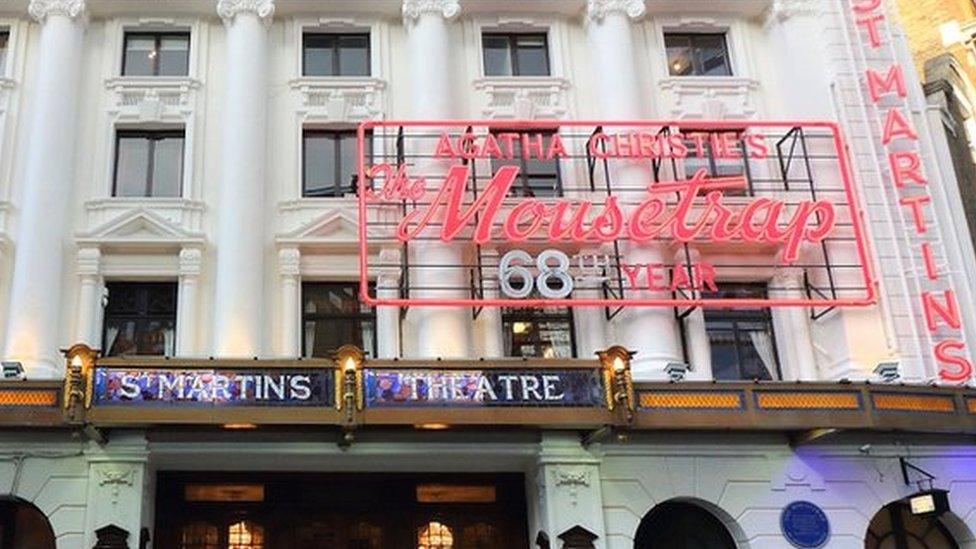
- Published27 September 2020
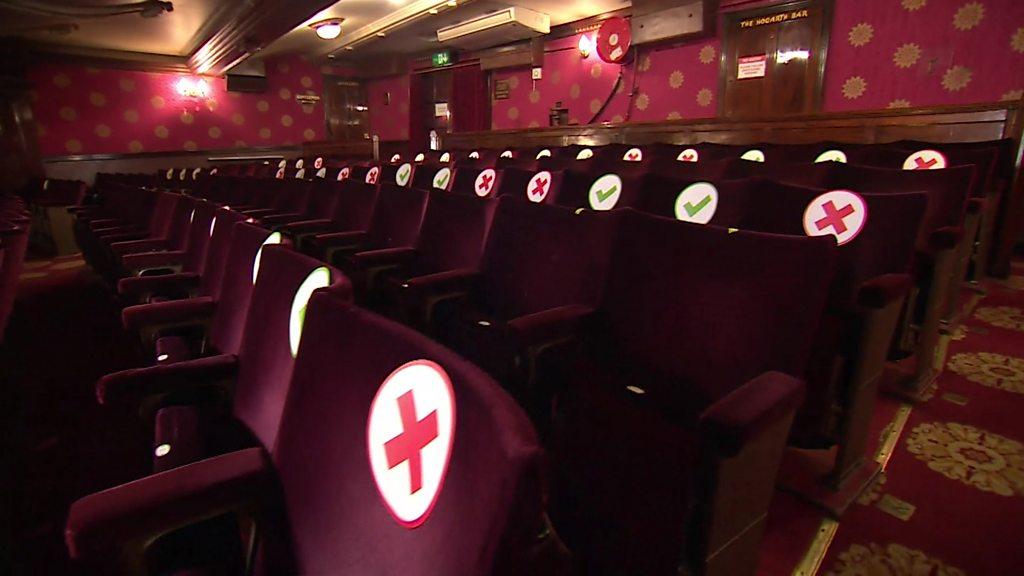
- Published14 September 2020
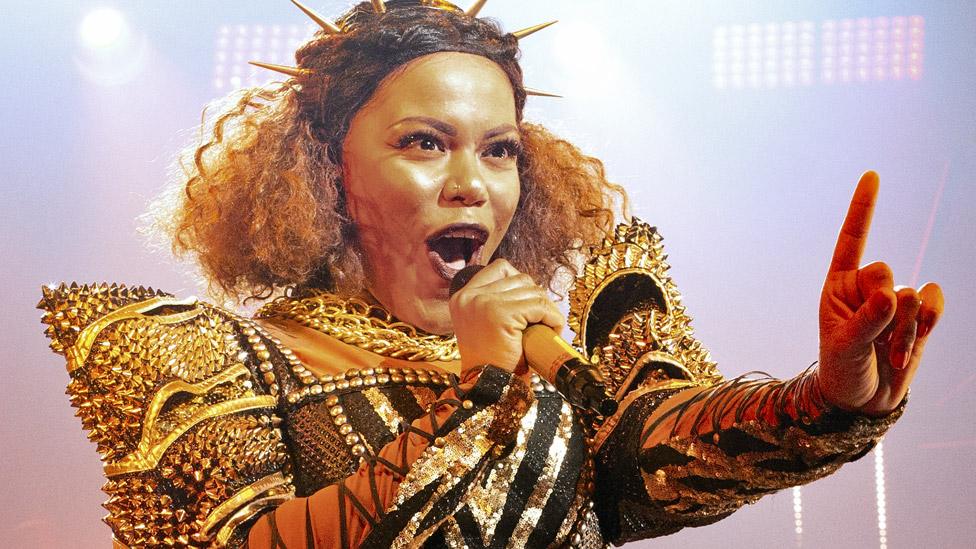
- Published6 July 2020
